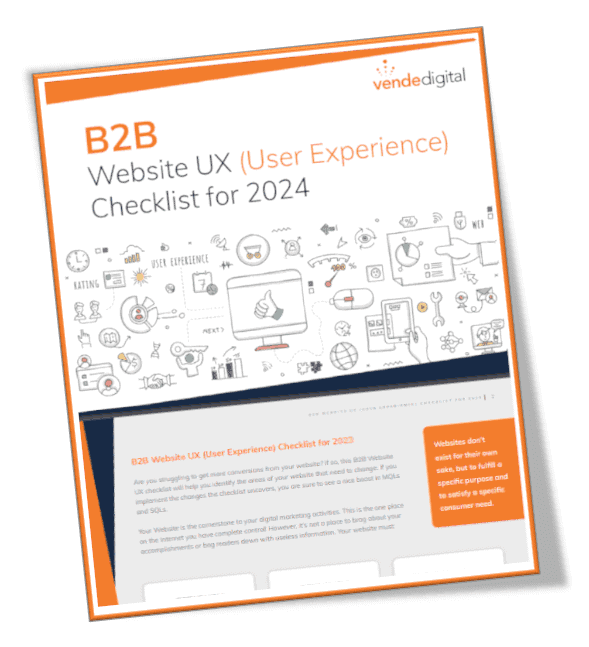If this, then that. Conditional statements that they teach in high school geometry classes. If website traffic increases, then website conversions should increase. But what if your website conversions aren’t growing despite increased traffic? It happens. Generally speaking, organic visitors are more likely to convert because they’re more targeted than other sources of traffic. In fact, SEO leads have a 14.6 percent close rate while outbound leads only have a 1.7 percent close rate. But organic traffic doesn’t always equal more conversions. Here are four reasons why your website conversions aren’t meeting your expectations.
Unqualified
Bigger isn’t always better. Targeting short keywords that have millions of searches per month is a great way to increase traffic to your website. But it is a poor way to increase website conversions. Because of the high volume of those keywords, you’re likely attracting a lot of unqualified organic traffic that isn’t leading to website conversions. And if that increased traffic isn’t leading to an increase in website conversions, then there isn’t much point in it.
A marketing action that focuses on driving traffic, and not conversions, will lead to a plummeting conversion rate. If you’re looking to drive qualified organic traffic to your site that will actually convert instead of targeting short keywords, you should be focusing on ranking your site for relevant long tail keywords.
These long tail keywords are typically three or four keyword phrases that are very specific to what you are selling. Even though the keyword volume for these long tail keywords is probably lower, users who type long tail keywords on Google are generally more qualified because they have a clear idea of what they want. And ranking for those keywords ensures that you’re attracting the traffic that’s more likely to convert.
There are many ways to find long tail keywords for your website including looking at the related search queries below the Google search result, looking for the keyword suggestions in Google when you type, using Google AdWords Keyword Planner by leveraging include and exclude functions, and using a keyword research tool like Answer the Public or SEMrush.
Untrustworthy
Experience can either lead to trust or distrust. Repeat visitors have the opportunity to choose whether to trust or distrust a brand based on their prior experience with that brand. That means your business can earn the trust of your visitors over time by being consistent, delivering what you say you will and satisfying their needs through online marketing channels.
But how can you gain the trust of your first-time visitors? The ones who you haven’t had a chance to build a relationship with yet. While they can’t go off of experience, there are a few trust factors that you can implement which will make you seem more authoritative and trustworthy. These trust factors include customer reviews, published case studies, and trust badges.
Customer reviews let those first-time visitors hear about your business from another customer and not just from you. Let your current customers sing your praises by publishing testimonials on your site. WikiJob used testimonials to increase their conversions by 34 percent.
Case studies show your customers examples of how you’ve helped other people just like them. When they can see how you might help them as well, you’re well on your way to convince them to become your customer. And while including a trust mark on your site doesn’t do much for your design, it is effective for building trust. Also, make sure to encourage new visitors to stay connected with your business by joining your email list.
Not Compelling
You have to make your product stand out from your competition. To do that, you need to understand the real reasons a customer purchases your product. You can start by asking yourself questions like: Who do you sell your products or services to? What problem does your product solve? How do you do it better than your competition?
If you can’t articulate what makes your product different than the competition, your visitors won’t know why they should buy from you either. Understand what sets your business apart and then show that difference to your customers. Otherwise, your offer won’t be compelling enough to make sales.
Not Optimized
Fixing a problem blindly probably isn’t going to actually fix the problem. You’ve got to utilize A/B testing on your website to focus on fixing the loopholes in your website conversion funnel. Come up with a hypothesis to test against your current website and check if they boost conversions. With testing, you can test the changes you make to see if they actually produce a positive result.
There are few tools that you can use to start conversions optimization including Google Optimize, OptinMonster, and Crazy Egg. Google Optimize is a free A/B testing and personalization product by Google. Built on Google Analytics and using advanced statistical modeling and targeting tools, it lets you easily conduct experiments to see what works best on your site.
OptinMonster is a conversions optimization and lead generation software. It allows you to test your lead generation forms to boost conversions. Crazy Egg is a heat map tool that can tell you how visitors click and scroll through your website.
Increasing your website conversions isn’t a simple snap of the fingers. It will take time and testing to create a strategy focused on generating website conversions. But once you understand why your website conversions aren’t meeting your expectations, you can start implementing strategies to increase those conversions.
Sign up for a free website analysis

